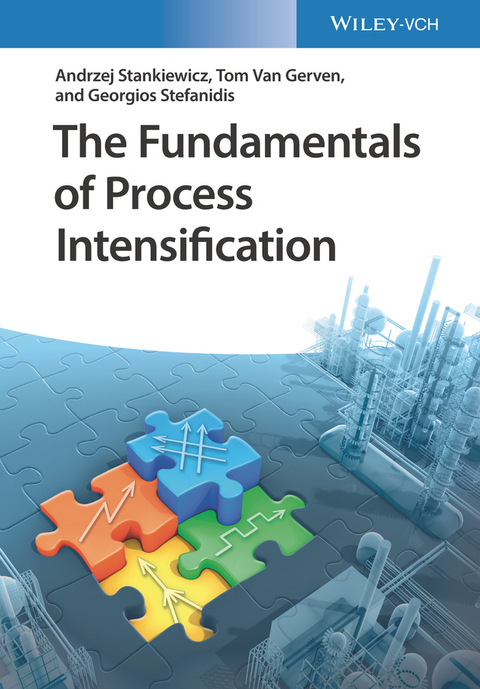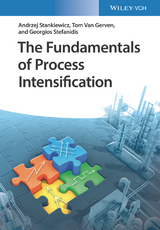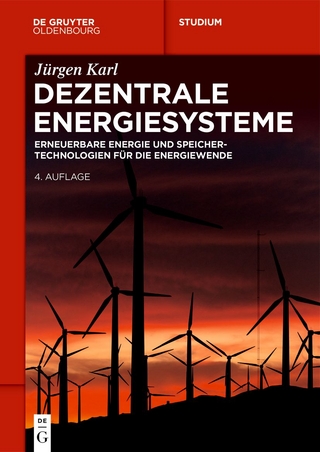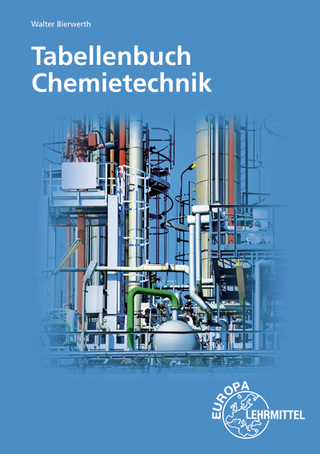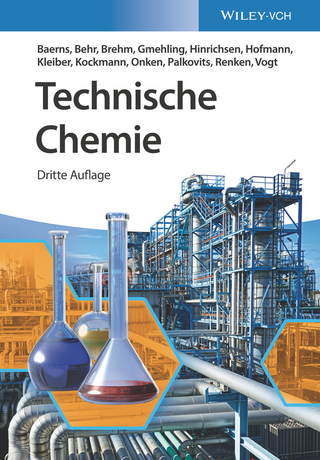The Fundamentals of Process Intensification
Wiley-VCH (Verlag)
978-3-527-32783-6 (ISBN)
This book goes beyond the classical area of chemical engineering to discuss the theoretical and conceptual basis of process intensification (PI). It shows readers how to use that conceptual basis in the practical development of intensified chemical and biochemical processes. It discusses the mechanisms of the interactions between various energy forms and materials, looking for the synergies at different process levels, and analyzing the ways of manipulating the time characteristics of the events. In addition, the book extensively covers developments in other disciplines from a chemical engineer´s point of view.
The Fundamentals of Process Intensification consists of three major parts. In the first part, the PI principles are introduced, discussed in detail, and illustrated with practical examples. The second part is devoted entirely to fundamental approaches of process intensification in four domains: spatial, thermodynamic, functional, and temporal?described as structure, energy, synergy, and time, respectively. The third and final part explores the methodology for applying the fundamental PI-approaches in practice. The book also addresses the close relation to sustainable (including inherently safe) processing, and presents readers with several case studies of diverse types of chemical processes.
-The first book ever to cover the fundamentals and industry applications of the technology and application of process intensification
-Details technologies and focuses on safety, energy, and environmental issues, giving guidance on how to incorporate PI in plant design and operation
-Explains PI in a more fundamental way, through four generic principles and four elementary domains: spatial, thermodynamic, functional, and temporal
-Describes and discusses developments in disciplines such as chemistry, catalysis, energy technology, applied physics, electronics, and materials science, which are relevant to process intensification from a chemical engineering perspective
Aimed at the postgraduate-level teaching of PI, The Fundamentals of Process Intensification will also be of interest to engineers working in the industry. This includes, not only the chemical processing sector, but the other industrial sectors where the word "efficiency" is the name of the game.
Andrzej Stankiewicz, PhD, is Full Professor and Chair of Process Intensification at Delft University of Technology, the Netherlands, and Director of TU Delft Process Technology Institute. Tom Van Gerven, PhD, is Professor of Process Intensification at the University of Leuven, Belgium and head of the Process Engineering for Sustainable Systems section in that University. Georgios Stefanidis, PhD, is Professor at the University of Leuven, Belgium.
Preface
Part One: The Principles
Introduction
The Four Principles
Part Two: The Domains
STRUCTURE - PI Approaches in Spatial Domain
ENERGY - PI Approaches in Thermodynamic Domain
SYNERGY - PI Approaches in Functional Domain
TIME - PI Approaches in Temporal Domain
Part Three: Fundamentals in Practice - Designing a Sustainable, Intensified Process
Process Intensification and Sustainable Processing
Ecological assessment of intensified technologies
Process Intensification and Inherent Safety
How to Design a Sustainable Intensified Process?
Case Studies
| Erscheint lt. Verlag | 24.7.2019 |
|---|---|
| Verlagsort | Berlin |
| Sprache | englisch |
| Maße | 170 x 244 mm |
| Gewicht | 700 g |
| Themenwelt | Naturwissenschaften ► Chemie ► Technische Chemie |
| Technik | |
| Schlagworte | Catalysis & Chemical Reaction Engineering • chemical engineering • Chemie • Chemische Verfahrenstechnik • Chemistry • Industrial Chemistry • Industrial Engineering • Industrial Engineering / Manufacturing • Industrielle Verfahrenstechnik • Katalyse u. Chemische Reaktionstechnik • Nachhaltigkeit • Process Intensification & Integration • Produktion i. d. Industriellen Verfahrenstechnik • Prozessintensivierung u. -integration • Prozessoptimierung • Technische u. Industrielle Chemie |
| ISBN-10 | 3-527-32783-5 / 3527327835 |
| ISBN-13 | 978-3-527-32783-6 / 9783527327836 |
| Zustand | Neuware |
| Informationen gemäß Produktsicherheitsverordnung (GPSR) | |
| Haben Sie eine Frage zum Produkt? |
aus dem Bereich
